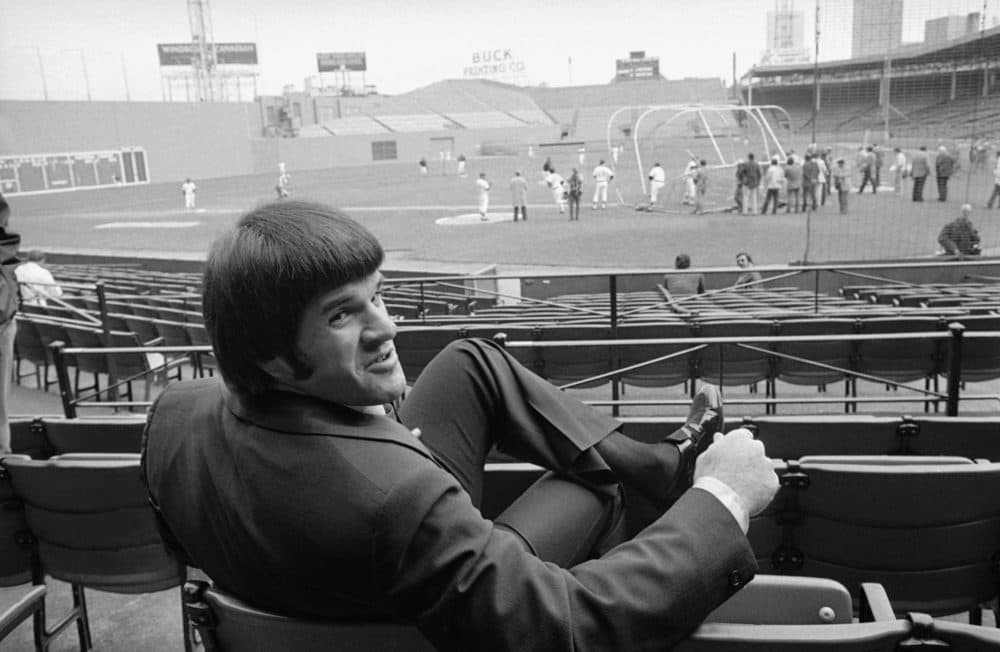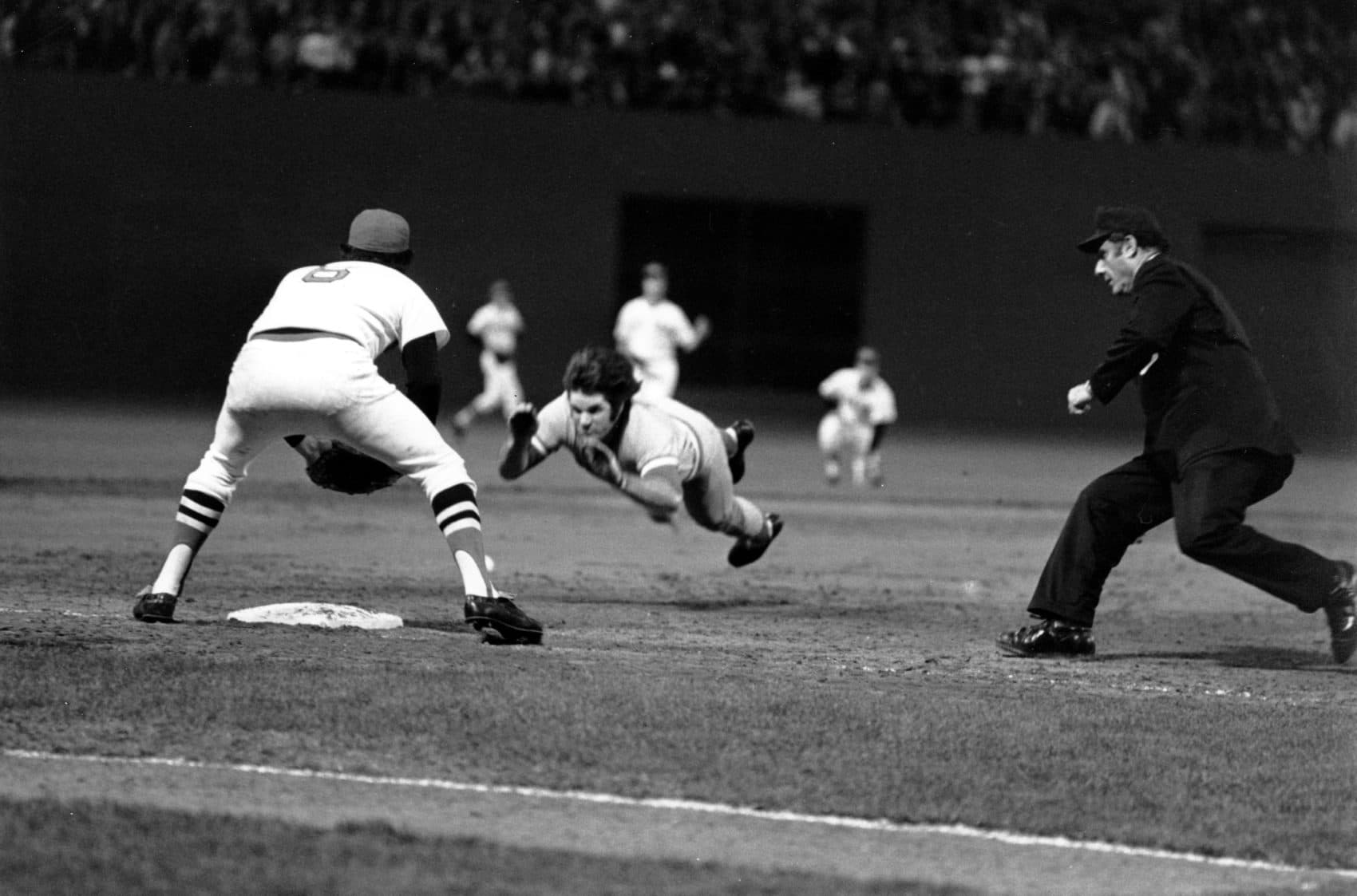Advertisement
Pete Rose Remembers His Performance In The 1975 World Series
Resume
This story is part of Only A Game's 2019 Thanksgiving Leftovers Show. Find the full episode here.
The 1975 World Series between the Cincinnati Reds and the Boston Red Sox was a memorable one.
"Hey, that was a great Series," says Pete Rose.
He has good reason to feel that way. Because his 10 hits and aggressive base running were crucial to the outcome. As was his cockiness.
Back in July, I talked with Pete Rose about his USO tour of Vietnam with Joe DiMaggio. Rose was self-deprecating and humble. Now, those are not the qualities for which Rose, infamous for his lifetime ban from baseball for gambling on Major League Games, is best known. But, toward the end of our interview, Rose’s hubris emerged in all of its unfettered glory. It happened when I told him that the 1975 World Series broke my 12-year-old, Red Sox-loving heart.
"I'll tell you … let me tell you one story about that Series. OK?" Rose asks.
How could I say “no” to Pete Rose?
"We're playing Game 7. And Bill Lee’s ahead, 3-0," Rose says.
Just for a little historical context, the Red Sox hadn’t won a World Series since 1918. Anticipation among Red Sox fans that they’d finally win it all at Fenway Park was ridiculously high. And now they were up 3-0 in the top of the sixth, with their best starter on the mound.
Rose singled. Then Lee got Joe Morgan to fly to right.
"I’m on first base. There’s one out," Rose says.
Reds catcher Johnny Bench was the next batter up. I hoped Bill Lee could get him to ground into a double play.
Bench tried to oblige by hitting a ball to short. Red Sox shortstop Rick Burleson tossed to second. Rose slid hard into second baseman Denny Doyle and his throw sailed over the first baseman's head.
"I knocked Denny Doyle on his butt," Rose says, "and he threw the ball into the dugout. OK? No double play, because I broke up a double play."
Rose was out, but Bench advanced to second on the throwing error. Reds cleanup hitter Tony Perez came to the plate with two out and one on. Lee’s first pitch, a fastball, missed outside.
"The next pitch, Bill Lee threw an eephus pitch," Rose says.
The "eephus pitch" was a blooper thrown high into the air to fool the batter into thinking there’s no chance the ball could drop in for a strike. That worked for Bill Lee. Some of the time.
Perez was waiting for it. He belted it over the left field screen and onto Lansdowne Street.
"And, because I broke that double play up, now it's 3-2, and all the momentum's on our side," Rose says.
Failure to turn the double play was costly for the Red Sox.
"You had us down 3-0 in Game 7," Rose says. "But, because of a hard slide into second, the whole momentum of that game turned around. And then we went on to win the game."
Cincinnati beat Boston 4-3 in Game 7 and won the 1975 World Series.

When I confided to Pete Rose that he and Cincinnati’s Big Red Machine had broken my tender young heart in 1975, I was hoping for a little bit of consolation or sympathy. Or the kind of mature insight Rose had shown when he shared poignant stories about the GIs he and Joe DiMaggio met in Vietnam hospitals and war zones.
But not this time. And certainly not regarding the 1975 World Series. Which many, including Pete Rose, consider the greatest of all time.
'You know why that was the best ever?' Rose asks. "Because I was MVP in that Series."
He added some maniacal laughter for good measure.
Thanks, Pete.
Our original story on Pete Rose tour of Vienam with Joe DiMaggio aired on July 27, 2019. Pete Rose recently authored “Play Hungry: The Making of a Baseball Player.”
This segment aired on November 30, 2019.

